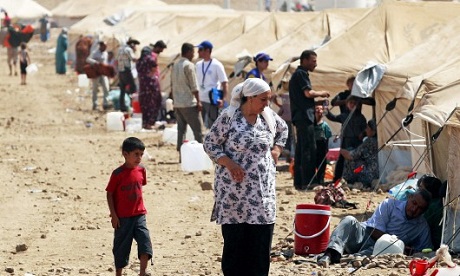Catholic charity Aid to the Church in Need (ACN) wants the European Union and the United States to help get humanitarian aid to Syria.
The charity says it is unable to make money transfers to the local Church despite humanitarian exemptions to sanctions against Syria.
ACNs call for help came on the 10th anniversary of the war in Syria.
“It is our duty to provide help to the suffering civil population of Syria and especially to the rapidly dwindling Christian minority,” ACN International’s president, Thomas Heine-Geldern said.
“In their name, I beg you to implement the existing international legal framework, which allows humanitarian exceptions to the embargo.”
Heine-Geldern said although Western sanctions against Syria contained humanitarian exemptions, aid agencies were unable to take advantage of them.
“Although the sanctions foresee exceptions for money transfers related to humanitarian help, it does not work,” he said.
According to Heine-Geldern, the European IBAN and American SWIFT banking codes block transfers bearing any reference to Syria and any Syrian city.
“Consequently, it becomes almost impossible for charitable organisations to transfer funds for humanitarian purposes to meet the needs of the suffering population.”
Money transfers are of vital importance.
This is because Church institutions and NGOs on their own cannot ship the desperately needed humanitarian assistance to the almost 14 million Syrians in need it,
Instead, ACN usually sends money for its counterparts to buy food, medical help and clothing locally.
These difficulties have led Heine-Geldern to call on the community of states to instruct banks to accept money transfers for humanitarian aid, as already provided for in the exceptions to the existing sanctions.
Besides the obstacles preventing the transfer of money, Heine-Geldern says there are inherent problems in importing humanitarian goods into Syria.
“To apply for permits, our partners often have to overcome insurmountable multilingual procedures put in place by the sanction authorities.” Permits are necessary even for small amounts of goods and involve high fees, he said.
It is particularly difficult to import ‘dual-use’ goods that can be used for purposes other than humanitarian ones.
Heine-Geldern said as the interpretation of these provisions is very broad, even the powdered milk urgently needed for undernourished babies and children falls into this category.
He appealed to Western governments to give clearer definitions of permitted and prohibited goods, and remove bureaucratic hurdles to delivering aid.
He proposed “a general license for designated NGOs” as a possible interim solution.
ACN, founded in 1947, has donated almost $50 million to 900 humanitarian and pastoral projects in Syria since war broke out.
Source
- CNA
- Press Release
- Image: The Borgen Project
